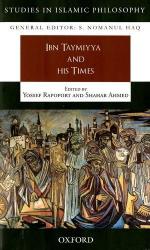|
This section contains 5,145 words (approx. 18 pages at 300 words per page) |

|
In Islam the development of philosophical thought, properly speaking, succeeded earlier schools of dialectical theology (kalām) that began to arise in the eighth century (second century AH in the Islamic calendar) through the action of foreign ideas—particularly Greco-Christian—on certain fundamental moral issues raised within the Islamic community. These moral issues clustered particularly around the problems of the freedom of the human will, God's omnipotence and justice, and God's relationship to the world. Although these early schools do not properly belong within the scope of this article, since they are theological rather than philosophical, a very brief characterization of the main groups and their tenets will serve to elucidate the content of the philosophical movement itself. Broadly speaking, there were two theological schools. The so-called rationalist, or Muʿtazila, school maintained the freedom of the will; insisted that right and wrong are knowable through...
|
This section contains 5,145 words (approx. 18 pages at 300 words per page) |

|


